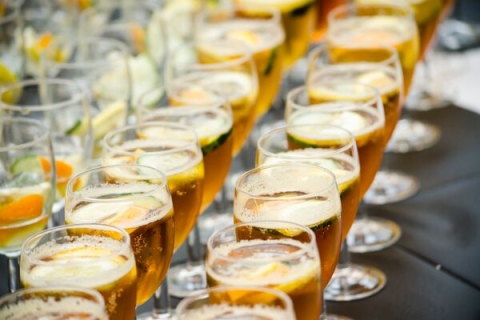

9 May 2018
3 min read
The University of Portsmouth is taking part in the annual Pint of Science festival next week (Monday 14 to Wednesday 16 May) which brings researchers to local pubs to present their scientific discoveries.
Over three nights of exciting science at various pubs across the city, more than 15 researchers will give a variety of talks on how breast cancer changes bone, forensic decision making, unravelling the earliest animal communities and everything in between.
University of Portsmouth and Historic England researchers will be present at pubs across the city, including The Barley Mow, The Fat Fox and The Kings, Loft. Tickets are available from the Portsmouth Pint of Science website, with each evening costing just £4. Doors open at 7pm and talks are from 7.30pm–9.30pm.
Alongside the main talks, each evening will also include a range of science-inspired activities including live experiments, quizzes, games, geeky puzzles, engaging stories and other interactives.
Monday 14 May
Speed Dating – The Kings
Raising the roof of the world: a geological exploration of the Himalaya – Dr Catherine Mottram (Lecturer, Earth and Environmental Sciences)
Crumple and Crack: exploring the deformation of the Purbeck Coast and the Isle of Wight – Professor Randall Parrish (Professor of Isotope Geology)
Wondering about worms. The impact of earthworms on archaeology and soil – Matthew Canti (Geoarchaeologist)
Dipping and Diving – The Fat Fox
Cold water immersion – pill or potion? – Dr Heather Massey (Lecturer)
Genderless – understanding the science, perceptions and challenges of this phenomenon – Dr Karen Dyer (Senior Lecturer, Portsmouth Law School)
Drown your sorrows – The Barley Mow, 7.30pm–9.30pm
Stress: From the Stone Age to the Space Age – Tony Crabtree (Lecturer Occupational and Environmental Health and Safety Management)
Getting Boozed! The development and maintenance of alcohol addiction – James Clay (Postgraduate Student)
Tuesday 15 May
Fantastic Fossils – The Kings
I’ve got a bone to pick with you: unpicking the science of bone beds – Luke Hauser (PhD Researcher)
The case of the missing cactus – Professor David Martill (Professor of Palaeobiology)
Unravelling some of the earliest animal communities – Dr Nicholas Minter (Senior Lecturer, Earth and Environmental Sciences)
Building Blocks – The Fat Fox
Building up from bones – exploring the wonders of skeletons, tissue and cancer treatments – Dr Robin Rumney (Senior Research Associate)
3-D Computer Modelling: what is its role in designing new drugs? – Dr Paul Cox (Principal Lecturer in the School of Pharmacy and Biomedical Sciences)
Express Yourself – The Barley Mow
The Evolutionary Origins of Language: How and Why? – Derry Taylor (PhD Student)
Fight or Flight: why anxiety isn’t always what it seems? – Louise Jupe (PhD Student)
Wednesday 16 May
Don’t Start a Fire! – The Kings
Wildfires! Past, Present and Future – Margarita Tsakiridou (PhD Researcher)
Energy Crisis! What Energy Crisis? – Stuart Dick (PhD researcher, Geography)
Reflections from the past: using geophysical survey to find buried archaeology – Neil Linford (Senior Geophysicist)
Where’s your Head at? – The Fat Fox
What can neurodevelopment tell us about childhood brain cancer? – Dr Helen Fillmore (Reader in Molecular Neuropathology and Neuro-oncology)
Blowing up the eye – mechanisms controlling early eye growth – Professor Lynda Erskine (Professor of Developmental Neurobiology, School of Medical Sciences, University of Aberdeen)
Crime Stoppers – The Barley Mow
Stranger Danger: Mixed messages and protecting children from abduction – Dr Craig Collie (Lecturer in Criminology and Criminal Justice)
Forensics on the brain: exploring the science behind decision-making – Dr Helen Earwaker (Lecturer in Forensic Studies)
Monday 14 May-29 June
A Natural History of Deep Time
Don’t miss A Natural History of Deep Time, an art exhibition at Portsmouth Guildhall that celebrates billions of years of evolution with a gallery of palaeoart: scientifically-informed artistic recreations of extinct organisms and their world. It runs from 14 May until 29 June and is free to attend, no booking required.
